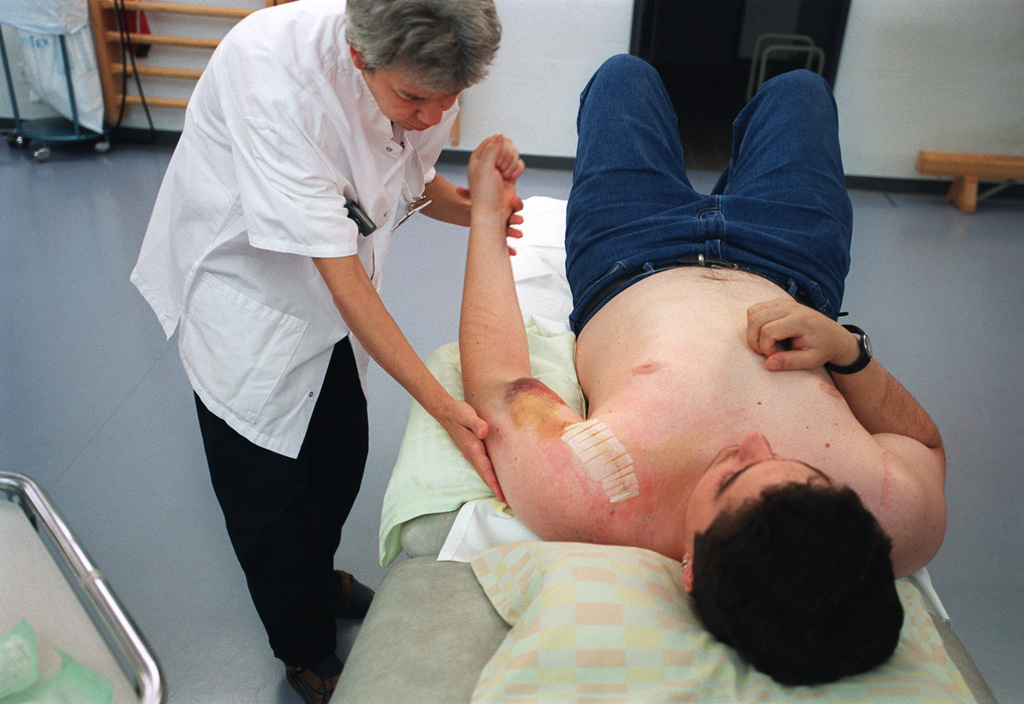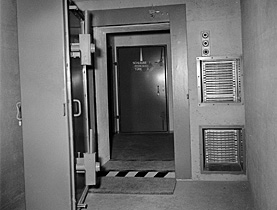Swiss make New Year’s regulations

On January 1, hundreds of new laws came into force. Most will have little effect on everyday life – the biggest changes are in the social security system.
According to the Federal Health Office, in 2012 health insurance premiums will go up by an average of 2.2 per cent for adults and 4.4 per cent for 19- to 25-year-olds. For most people this will translate into several hundred francs per year.
This will be offset slightly by the decision to give complementary medicine a second chance to prove its worth as an insurable health cost.
Last January, Interior Minister Didier Burkhalter announced that five therapies previously struck off the state insurance list – meaning they would not be reimbursed – will be reinstated as of 2012 as part of a six-year trial period. The sting: all must prove their “efficacy, cost-effectiveness and suitability” by 2017.
The therapies include: anthroposophical medicine, homeopathy, neural therapy, phytotherapy and traditional Chinese medicine.
Back in 2005 the interior ministry rejected the therapies, arguing they failed to meet the legal requirement of “scientific proof” of the three efficacy criteria. The reversal in policy follows a nationwide vote in 2009 in which two-thirds of Swiss came out in favour of including the therapies on the constitutional list of paid health services.
The financial consequences of the most significant health reform to get underway in 2012 – a new way of funding hospitals – remain unclear. This reform will allow patients to go to the hospital of their choice anywhere in the country.
Pensions
Also from January, money paid into the occupational pension fund will for the first time yield less than two per cent in interest on capital.
The cabinet decided in November to lower the minimum interest rate to 1.5 per cent from two per cent in line with recommendations by a government advisory board. The move was prompted by volatile financial markets as well as falling stocks and bonds, a cabinet statement said.
There will also be changes in the second social security pillar, the occupational benefit plan. Men who retire in 2012 will receive an annual pension of 6.9 per cent (down from 6.95 per cent) of their retirement assets – that’s to say, the contributions and interest that have built up over their working lifetime. For women the figure is dropping from 6.9 per cent to 6.85 per cent.
Road fines
But the New Year brings not only higher premiums and lower pay-outs – the government has also taken some measures to relieve the pressure on people’s wallets.
Cyclists, for example, will no longer have to fork out SFr5 ($5.30) a year for a bike insurance sticker, to cover third party liability. From now on they will be responsible for sorting out their own personal liability insurance.
And drivers will no longer have to pay to get rid of their old car battery – this will in future be included in the purchase price.
Traffic fines on the other hand are set to go up: drive on a motorway without the obligatory road tax vignette and you’ll be hit for SFr200, double the previous amount.
And if you get caught behind the wheel having never passed a driving test, you’ll face up to three years in prison – the same as someone who has had their driving licence taken away.
Audit obligations
Other beneficiaries of tweaked laws include constructors and small and medium-sized business owners.
Thanks to a relaxing of the emergency shelter law, bunkers need now be built only in complexes of more than 38 rooms – previously it was eight rooms.
That said, if you want to build a smaller house and forgo a shelter, you’ll still have to pay an exemption tax, but this has been reduced from SFr1,500 to SFr400-800.
Lower costs will also be enjoyed by anyone doing business with collateralised mortgage obligations. Now that they can be paperless, many of the costs they used to incur have disappeared: drawing up the documents, storing them safely and physically transferring them between registry, notary’s office and bank.
Many small and medium-sized business could also save a few thousand francs as a result of new regulations governing audit obligations.
Now companies must carry out regular auditing only if two of the following three criteria apply to them in two consecutive years: total assets of at least SFr20 million; turnover of at least SFr40 million; at least 250 full-time staff.
The House of Representatives and the Senate constitute parliament, which is the legislative power in Switzerland.
The two chambers debate all constitutional amendments.
Bringing in new legislation is a complex and at times protracted business. The process takes at least 12 months but it has been known to take as long as 12 years or more.
Swiss voters also have the chance to influence legislation.
Any individual or group can propose a law through a popular initiative: if they are able to gather 100,000 signatures in support of their proposal it has to be put to a nationwide vote. This is called a people’s initiative.
Anyone who objects to a law passed by parliament can call a referendum by gathering 50,000 signatures. This gives voters the chance to overturn parliament’s decision.

In compliance with the JTI standards
More: SWI swissinfo.ch certified by the Journalism Trust Initiative




You can find an overview of ongoing debates with our journalists here . Please join us!
If you want to start a conversation about a topic raised in this article or want to report factual errors, email us at english@swissinfo.ch.